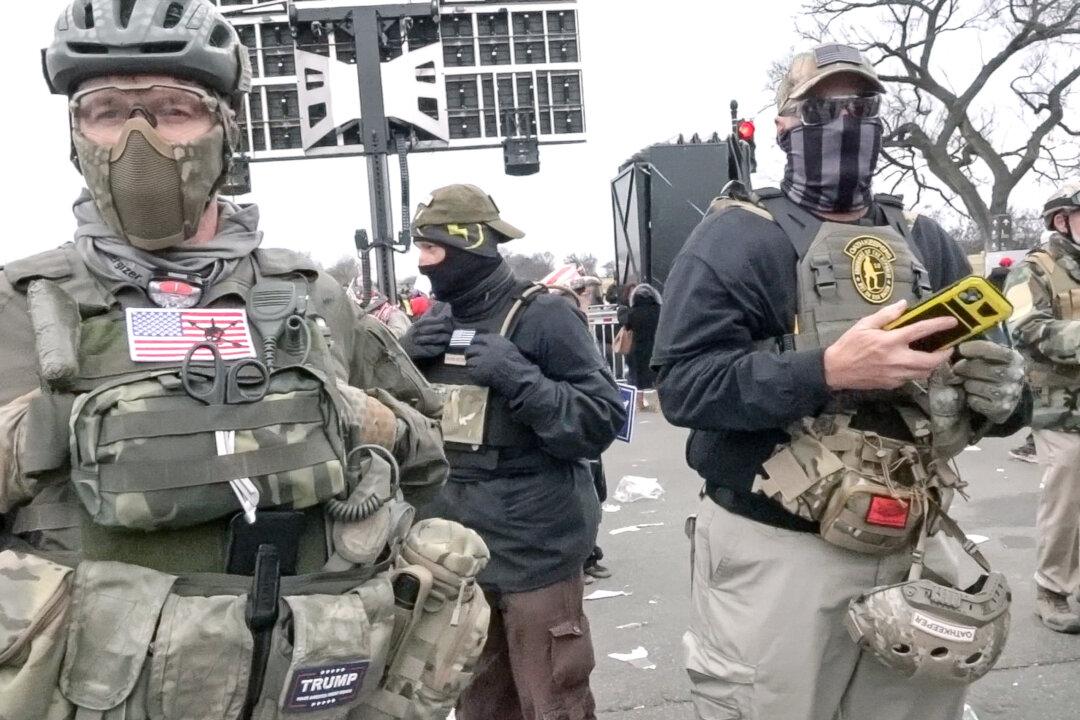A federal judge quickly shot down an 11th-hour motion by Oath Keepers founder Elmer Stewart Rhodes III to appoint a special master to oversee the processing and distribution of massive amounts of evidence in the Jan. 6 seditious-conspiracy case against him and four co-defendants.
Through his new attorney, Edward Tarpley Jr., Rhodes filed a flurry of motions between Monday night and Tuesday morning. Tarpley argued that Rhodes cannot be prepared for the Sept. 27 criminal trial because, until recently, Rhodes has not had meaningful access to case evidence.





